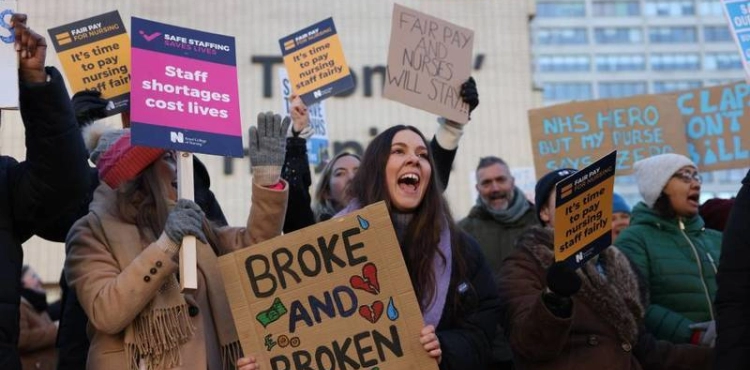The British government announced that 1,200 soldiers will be mobilized to replace the striking paramedics and border police, ahead of a new week of several strikes.
Britain, which has an inflation rate of more than 10%, is witnessing unparalleled popular protests in decades. These strikes affect several sectors, including transportation and health.
In an unprecedented move, nurses stopped working Thursday to demand higher wages and better working conditions. A new strike was announced on Tuesday.
The paramedics, in turn, expect to stop working for two days, on December 21 and 28, to demand a raise in their salaries.
It will also strike border police for several days by the end of the year.
Measures have been taken to replace 1,200 members of the armed forces in the place of workers in the health sector and border police, as stated by the Prime Ministry.
More than a thousand public sector employees will also be mobilized.
Writing in The Sun newspaper on Sunday, British Prime Minister Rishi Sunak slammed "unions causing misery to millions, with a transport strike in particular at cruel time for Christmas".
"The rail workers and border agents were offered fair deals - and taxpayers sensible," the Conservative prime minister added. “An increasing number of union members wanting to reach an agreement,” he said.
Regarding the mobilization of the army to replace the strikers, the Chief of the Defense Staff, Admiral Sir Tony Radakin, told the Telegraph newspaper: "We are not a reserve force. We are busy and carrying out many tasks in the name of the nation We have to focus on our primary role."
Mobilization of 1200 soldiers to replace strikers in Britain












